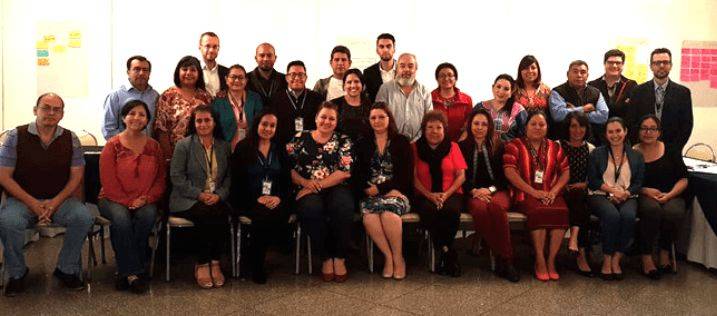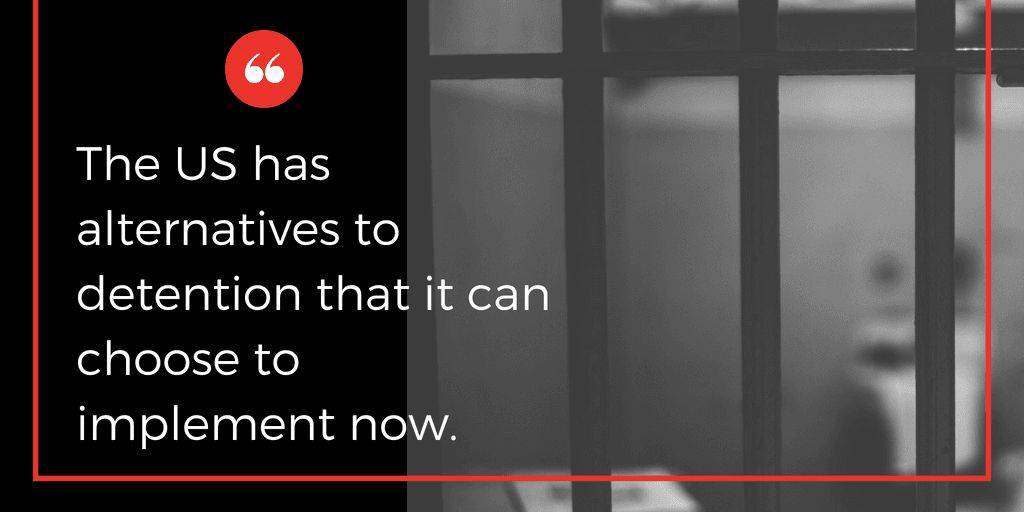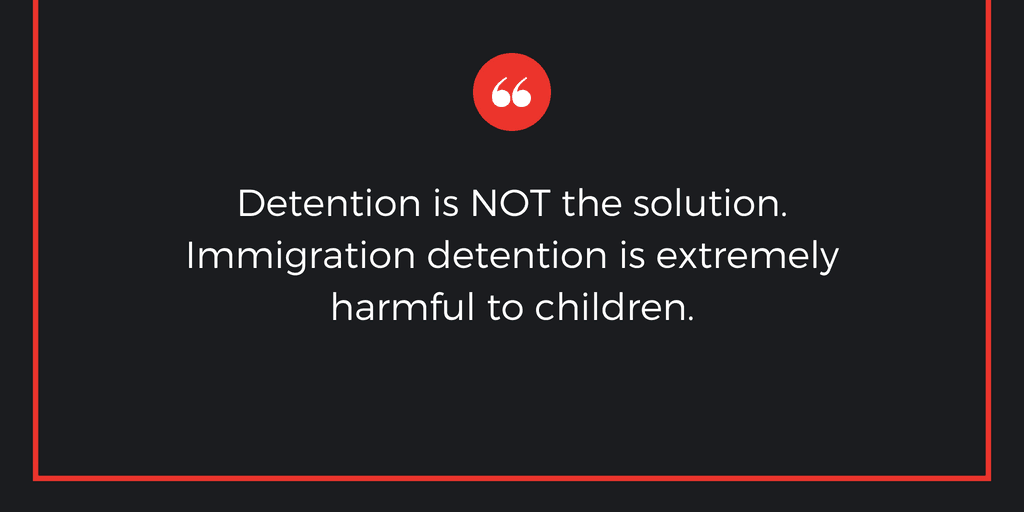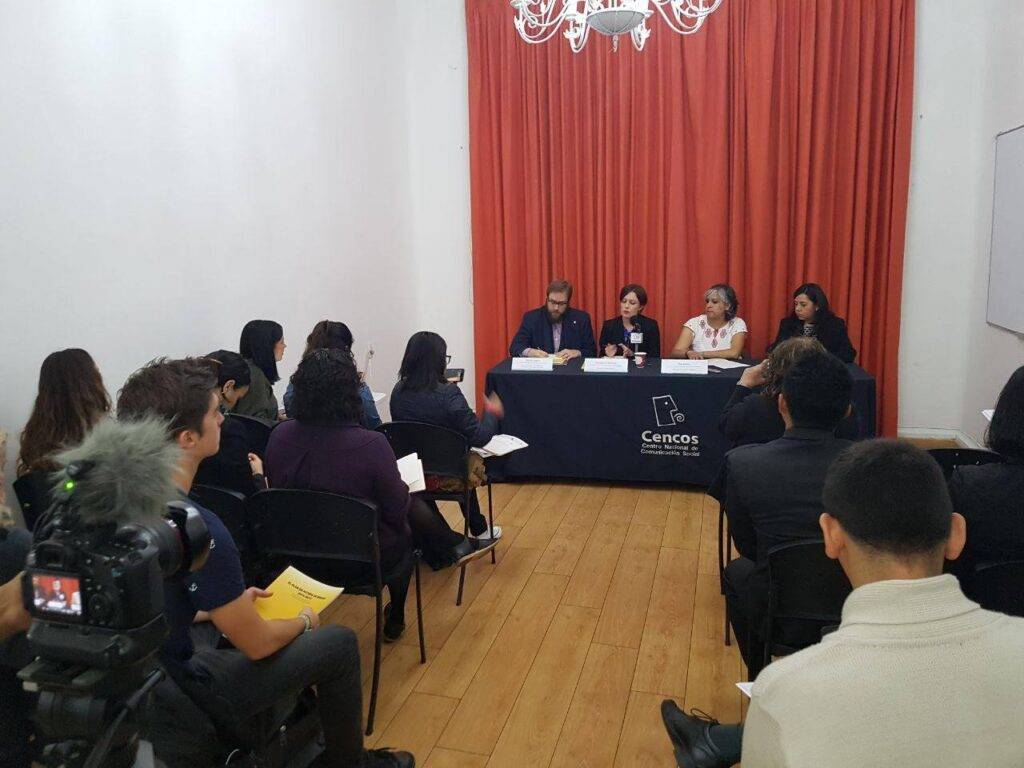Migrant Protection Council Opportunity in Guatemala

A training session was held by the IDC team and its members for representatives of various ministries that are mandated to form a new council for migrant protection, as part of the new migration code in Guatemala.
Guatemala: Individualized Screening for Returned Migrant Children
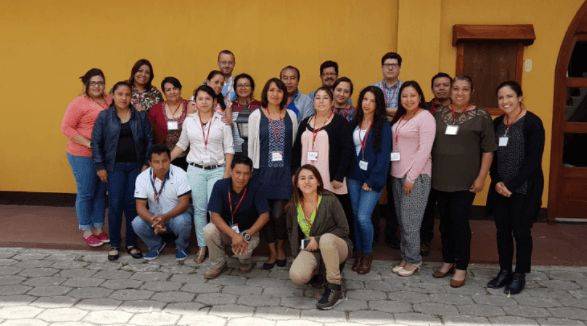
This event in Quetzaltenango focused on capacity building for child protection authorities responsible for the reception and referrals of migrant children returned to Guatemala from Mexico. The event was held by Staff from the government shelter for children 12 years of age and older to.
Focusing on Right to Personal Liberty in Guatemala
Our IDC team facilitated a strategy session with the Procuraduría de Derechos Humanos (PDH) in Guatemala on protecting the right to personal liberty. Dialogue focused on identifying and reporting immigration detention as a rights violation, and looking at options that limit the use of detention in Guatemala and advocate for alternatives in Mexico and the U.S.
Detention is NOT the Solution: US Plan to Lock-up Children Indefinitely
Within a couple of weeks of the US government announcing its ‘zero tolerance policy on illegal entry on its southwest border', the world witnessed the devastating impact of these actions on the lives of children and families seeking protection in the US.
Last week, amidst the uproar of outrage regarding the increased separation of families at the southern US border, President Trump issued an Executive Order on June 20, 2018 that instead of protecting these children, promises them and other families additional harm.
The Executive Order does nothing to address the more than 2,000 families that have been separated as part of the Administration´s ‘zero tolerance policy for illegal entry on the southwest border’. There is currently no statement regarding plans to reunite these children with their parents who are seeking protection in the US. The policy targeted families entering the US at unauthorized points, although many families seeking safety had been turned away at official ports of entry. These children were needlessly taken from their parents and held in inappropriate facilities as authorities struggled to find placement options in a system that is already overwhelmed. Now, many may remain in government shelters or with foster families and it is likely they will be left to navigate the complex immigration and asylum process alone. They may never find their parents again, even if they are all returned to the same country.
The Executive Order seeks to lock-up children together with their families for indefinite periods of time, in jail-like conditions. Instead of separating families, the Executive Order sets out plans to detain them together, and worse, to lock-up more children and families than ever before.
The US currently has immigration detention centers specifically for children and families, with a capacity to lock-up about 3,000 mothers and their children. These centers have been operating under harsh scrutiny and legal challenges since 2014. In fact, the U.S. government is legally mandated to release children to family members as quickly as possible and to place children in the least restrictive setting appropriate to their age and needs, in accordance with the 1997 settlement in Flores v. Reno. In 2015, a Federal District Court concluded that lengthy or indefinite family detention also violates this settlement.
The Executive Order seeks to challenge these rulings in order to lock-up these families in jail-like conditions, for indefinite periods of time. It asks the court to build and approve use of additional facilities to detain children together with their parents, including military bases. In direct contravention of existing court orders, it also plans to detain families indefinitely as they await the resolution of their immigration processes, which due to court backlogs, can take months and even years.
Detention is NOT the solution. Immigration detention is extremely harmful to children, regardless of the conditions or amount of time spent there. The American Academy of Pediatrics and other Experts on child development agree that detention subjects children to psychological trauma that is often irreversible. International human rights standards clearly state that detention in the context of migration is never in the child’s best interests and always constitutes a child rights violation.
For these reasons, members of congress, physicians, human rights experts, lawyers, judges, faith communities and immigrants and allies across the US and around the world have spoken out against the use of immigration detention.
The US has options to protect these children NOW. The US has alternatives to detention that it can choose to implement now. These alternatives respect children’s rights by allowing them to live together with their families in the community as they participate in the immigration process. The US has had successful experience with alternatives to detention, including the recent Family Case Management Pilot (FCMP) and other local initiatives that are proven to be less costly than immigration detention and cause less harm to the well-being of children and families. These alternatives are not to be confused with electronic monitoring devices, or ‘ankle bracelets', which criminalize migration and are classified by the IDC as an alternative form of detention.
Immigration detention is an expensive practice, costing the US around $300 USD per day for each family detention, whereas alternatives cost only $36 USD per family, per day. Detention is also ineffective at reducing irregular migration, and cannot legally be used to punish people or deter future migration.
Alternatives to detention can be implemented in the US now, and do not require changes to law. Sign the petition now to end child immigration detention.
Experts warn Mexico cannot take on US asylum seekers
On May 22, 2018, the IDC joined member and partner organizations in speaking out against a possible agreement between Mexico and the US that would require some people fleeing Central America to process their asylum claims in Mexico.
In a letter addressed to government representatives of the two countries, experts expressed concern that the agreement would significantly limit access to international protection and violate people’s right to seek safety in the U.S.
The letter highlighted Mexico’s overwhelmed asylum system and persistent use of immigration detention. It states:
“This type of agreement would prevent anyone who traveled through Mexico from asking for protection from the U.S. government and require they go back to Mexico to seek humanitarian protection. The process presumes migrants have the ability to access protection in Mexico and that it is a safe place to stay.”
Mexico is not safe for many migrants, and its asylum system lacks capacity to process more than a tiny fraction of cases of individuals seeking, and in need of, international protection.
Some of the key issues highlighted include:
- Individuals seeking protection in Mexico face many obstacles, including remaining in detention while their claim is being processed in the majority of cases, and lack of access to legal advice to assist in navigating Mexico’s immigration and refugee laws
- According to official statistics, 18,300 children were detained by immigration authorities in 2017; even those transferred to DIF custody [the family welfare department] are in locked-door facilities, in conditions that dissuade them from seeking protection
- The Mexican Refugee Commission, COMAR, also lacks financial, technical, and human resources, and the Mexican government has not shown the political will to address these shortcomings
- The agency has no capacity to adjudicate the number of asylum claims received in the United States. In 2017, 90,104 asylum claims were filed in the United States by asylum seekers from Central America alone … the system would further collapse if COMAR had to handle this many more applications
We strongly urge the United States and Mexico to abandon negotiations on such an agreement and instead to uphold their responsibility under international and national law to offer access to international protection to all those seeking it, ensuring due process and respect for family unity.
Mexico City NGOs & Family Welfare Department Sign Collaboration Agreement

Four IDC member organisations and allies of the IDC signed an agreement with the System for the Integral Development of the Family of Mexico City (DIF CDMX), the government department which is responsible for promoting social assistance and the provision of services for people in vulnerable situations. The agreement aims to strengthen joint work to promote the human rights of migrants and those who need international protection.
The organisations involved in the agreement expressed their commitment to establish joint work programs including skills exchange, training activities and deepening the expertise and promotion of the human rights of migrants and those subject to international protection; as well as to promote the programs and services that the DIF CDMX provides to this population.
Mexico plays an important role in the issue of migration as a country of origin, transit, destination and return. Collaboration such as this one between civil society and government is essential to promote the right to liberty and other human rights of all people, regardless of their immigration status.

Get to know more about the civil society organisations that have signed the agreement:




Call for Trinidad & Tobago to Use Alternatives to Detention
On the weekend of April 22, Trinidad and Tobago deported 82 Venezuelan nationals, some of whom were registered asylum seekers. There were also asylum seekers who had been held in the Immigration Detention Centre (IDC) although they had already applied for asylum and their refugee status determination interviews were pending.
The United Nations Refugee Agency (UNHCR) strongly criticised the decision and called for the country to abide by its international obligations to ensure people with possible international protection needs are given access to asylum procedures and never returned to a country where their lives may be at risk.

IDC research and other reports continue to produce evidence that immigration detention is often unnecessary and instead undermines processes to identify and ensure protection for persons fleeing violence or instability in their home countries. Detention is extremely harmful to individuals health and well-being and generally creates new obstacles to access asylum procedures, legal representation and support from NGOs. As happened in Trinidad and Tobago, detention can also lead to refoulement or unnecessary return before each individual case has been reviewed and resolved.
By contrast, alternatives to detention do better to ensure people seeking safety are identified and can access international protection procedures. The most effective alternatives to detention offer people the chance to remain in community, and provide for basic needs, legal advice and individual case management while awaiting a final outcome on their migration situation.

Such alternatives already exist in Trinidad and Tobago, including programs specifically for people seeking international protection. These alternatives include community based programs run in collaboration with local civil society organization Living Water Community (LWC). LWC provides case management and partners with UNHCR and the International Organization for Migration (IOM) to assist persons in the asylum process, from application to resettlement. They provide services or referrals for legal, psycho-social and other forms of support. Refugees and asylum-seekers are issued an “order of supervision,” which allows them to reside freely in the community with regular reporting to the Immigration Division. Such alternatives work to ensure human rights of individuals are respected while promoting compliance with authorities for effective case resolution.
Trinidad and Tobago is one of the largest refugee-receiving countries in the Caribbean. In response to the growing number of asylum-seekers in the country, the Government adopted a Refugee Policy in 2014. Although many challenges persist, the policy is a step in the right direction and articulates a phased approach to developing a comprehensive asylum system and plan of action for transitioning the responsibility of refugee status determination from UNHCR to the government.
IDC hopes that the government of Trinidad and Tobago responds positively to this important call to collaborate with international organizations and civil society to ensure alternatives to detention are made available and that the country is meeting its international obligations:
- Alternatives to detention based in the community should be strengthened and used for the majority of cases
- Detention should only be used as a last resort and completely avoided for asylum seekers, children and others in vulnerable situations
- People should be treated as asylum seekers and protected from refoulement until their claims can be assessed
- People should not be returned against their will to countries where their life or freedom would be threatened
- Detention centres should be independently monitored in partnership with civil society organisations to ensure international standards are met.
3 Years of Brazil Plan of Action: Evaluating State Commitments
IDC members and partners have contributed to national and regional advocacy that has resulted in important government commitments relating to the guarantee of the right to personal liberty in the Americas Region, including the Brazil Declaration and Plan of Action (2014).
The Brazil Plan of Action includes specific commitments to end the use of immigration detention of children, and implement alternatives to detention for people seeking asylum and others experiencing vulnerability. Last year, 2017 marked the third year of implementation of the Brazil Plan of Action and these important commitments.
In commemoration of this important anniversary, IDC collaborated with partners to develop both a Regional Report and national level report on Mexico to evaluate implementation of the Brazil Plan of Action in its first three years.
The reports include specific evaluation of commitments to eliminate immigration detention of children, develop ATD for asylum seekers and identification procedures in border zone and for vulnerable groups to improve access to alternatives.
The Mexico report was presented at a press conference in Mexico City and received significant media coverage, especially highlighting Mexico's inefficient protection of asylum seekers, despite the country's public commitments in international forums.
Press conference to present the National report on implementation of the Brazil Plan of Action in Mexico (February 19, 2018, Mexico City).
IDC's Program Officer for Mexico and Central America attended the presentation of the Regional Report at the Latina America and Caribbean Regional Consultation on the Global Compact for Refugees, held on February 19 and 20, 2018 in Brasilia.
Both reports contributed to dialogue for development of the main output of the consultation: a list of 100 points highlighting positive practices and experiences from the region to contribute to develop of the Global Compact for Refugees. Notably, these points include avoiding use of detention for asylum seekers and children, and expanding alternatives to detention that respond to individual needs and uphold the best interests of the child:
- Point 10: Refraining from administrative detention of asylum-seekers for irregular entry, and/or stay
- Point 11: The progressive implementation of alternatives to administrative detention of [migrants], asylum seekers, and refugees, through shelters, reception centers or other measures with due consideration of the specific needs of individuals, family unit and respect for human rights
- Point 23: The development of unified registration systems between asylum and migration authorities in order to ensure interoperability of data, better management of asylum claims, protection of persons against detention and refoulement, as well as a faster documentation issuance
- Point 77: The establishment of a regional network of government officials to liaise on the protection of migrant and refugee children and adolescents in order to promote the implementation of standards and guarantees of access to the asylum procedure and the determination of their best interest, including the right not to be detained and the right to family unity
- Point 80: The establishment of national protocols for the protection of unaccompanied asylum seeking children to promote family tracing and reunification, and foster care as alternatives to detention, in accordance with the best interest of the child
Civil society participants at the Regional Consultation in Brazil (19-20 February 2018, Brasilia)
Civil Society Calls for Humane Migration Policies in Argentina
One year after a Decree announcing more restrictive immigration policy and representing a huge setback in terms of regional and international human rights commitments, members of civil society have raised their voices in disapproval once again, calling for a urgent need for rights to be considered.
January 30 marked one year since the Argentine President, Mauricio Macri, changed the country’s immigration policy by announcing a decree of necessity and urgency (DNU) 70/2017.
The Decree represented a significant setback in terms of regional and international human rights commitments, including negative impacts on the right to liberty.
One year after the Decree, several civil society organizations, together with other experts in human rights, have critiqued DNU 70/2017.
This DNU has been the most anti-democratic reform of immigration law in Argentine history. There was n0 social and political debate, nobody (outside of certain areas of government) even had the possibility of seeing the draft before it was released.*
— Pablo Ceriani (@Pabloceriani_) January 28, 2018, Professor of law and coordinator of the Migration and Human Rights Program at the National University of Lanus in Argentina *unofficial translation
Picture: National campaign Migrar No Es Delito (Migration is not a crime). Collectively, organizations and other human rights advocates used this campaign to call for the repeal of Decree No. 70/2017
The intention of the DNU was to deal with an alleged increase in criminal behaviour associated with migrants. However, various civil society organisations, as well as specialists in the field, have pointed out that these claims were based on imprecise and distorted information, and that the previous Migration Law already provided adequate provisions for national security needs.
“Since February 2017, the decree has been studied by the Permanent Bicameral Committee for the Oversight of DNUs, with no date set for its debate in Congress. In this context, all administrative decisions made since the signing of the decree are valid.” –Center for Legal and Social Studies (CELS)
The Decree means that immigration detention in Argentina is no longer an exceptional measure, as it should be according to international human rights law.
The Decree 70/2017 includes the following changes:
- Maximum detention period increases from 30 to 60 days
- Indefinite detention for persons who appeal a removal order
- People can be detained at the start of an immigration procedure, even before an administrative removal order is issued
- Family reunification is no longer considered a criteria to limit unnecessary detention
This year the Global Compacts on Refugees and Migrants will be delivered. Argentina still has an opportunity to return to the status it had previously – as a migration policy leader for the region, and internationally. Argentina has a strong history of more than 10 years of addressing migration humanely, including the guarantee of the right to personal freedom.
10 ways the Trump administration has impacted immigration detention
One year on from the U.S. Presidential election, we look at the impacts that the Trump administration’s policies on immigration enforcement and detention have had on refugees, asylum seekers and migrants, both in the United States and globally.
Following his election as U.S. President, Donald Trump signed a number of Executive Orders related to border security, refugee and asylum admissions, and immigration enforcement.
In our article from earlier this year, 10 Ways the Trump Executive Orders Will Impact Immigration Detention, we examined the significant costly, and damaging implications the Orders would have for refugees, asylum seekers and migrants.
Now, almost one year later, we examine the harmful effects of those misguided policies. Despite significant pushback human rights advocates, local authorities, and migrant communities, the consequences are far-reaching and affect U.S.-born and migrant community members alike.
1. A commitment to mass detention as a border management strategy
The Trump Administration’s recently released Immigration Principles reiterate Trump’s rejection of humane and effective alternatives in favor of a costly and ineffective policy of mass detention. The heavily criticized principles seek to further expand the grounds on which migrants – including children and families – are detained and deported. They also substantially increase the country’s detention infrastructure and boost funding for immigration authorities, despite evidence that increased use of detention and enforcement does not actually deter future migration or promote effective border management. The first six months of the Trump presidency saw a 40% increase in arrests of undocumented migrants pending deportation. However, deportations have actually declined under this administration, leaving an increasing number of people to languish in inhumane conditions in immigration detention facilities.
2. A presumption of detention for virtually all undocumented immigrants
The expanded definition of persons who are a ‘priority’ for immigration enforcement has left virtually every undocumented person in the United States at risk of immigration detention. Arrests under the Trump Administration have disproportionately targeted those without any criminal record, as arrests of migrants that have committed no criminal offense have more than doubled. Arrests and detention of pregnant women are increasing, despite the immigration agency’s own guidelines that they should be released unless “extraordinary circumstances” exist.
Trump’s decision to end the Deferred Action for Childhood Arrivals (DACA) program – despite overwhelming evidence demonstrating recipients’ contributions to the US economy – puts 800,000 young people at risk of detention and deportation, though most have little or no connection to their country of origin. Trump has also begun dismantling protections for those who have fled civil war or natural disasters in their home country, ending Temporary Protection Status (TPS) for people from Sudan, Haiti and Nicaragua and refusing to guarantee extensions for other countries with TPS status.
3. Funding and construction of additional immigration detention infrastructure
The Trump Administration’s 2018 budget calls for an unprecedented $1.2 billion expansion in immigration detention capacity in the United States. Trump has asked Congress to allocate $2.7 billion dollars to lock up a daily average of 51,379 people in immigration detention in 2018. This would nearly double the average detention capacity of the past decade in what is already the word’s largest immigration detention system. Such costly expansion will be harmful and largely ineffective in deterring future migration.
4. Expanding the number of federal border guards to arrest and detain immigrants
Trump’s 2018 budget and Immigration Principles reiterate the President’s commitment to significantly increasing the capacity of US Immigration and Customs Enforcement (ICE) to arrest, detain and deport mothers, fathers, children and any person who is undocumented. While Executive Order (EO13768, Sec. 7) called for funds to hire an additional 5,000 Border Patrol Agents and 10,000 federal ‘enforcement and removal’ officers, recent reports suggest the administration plans to double the size of ICE by 2023, increasing staffing by 25,700 personnel. Causing further concerns – given already widespread allegations of mistreatment and neglect – the administration plans to abandon existing standards for health, safety and civil rights in immigration detention.
5. Encouraging local and state police to act as immigration officials
Trump’s Executive Orders requesting the Department of Homeland Security (DHS) Secretary to seek expanded partnership agreements with state and local police under the INA’s 287(g) Program have been met with significant opposition by local, municipal and state authorities throughout the US. There are currently dozens of so-called ‘Sanctuary’ cities, counties and States which have passed legislation protecting undocumented migrants, and preventing law enforcement authorities from assisting or cooperating with ICE officials.
Trump’s Immigration Principle (2. B.) provides incentives for State and local governments to enter into agreements with the Federal Government regarding immigration enforcement efforts. However, in the face of opposition Trump has explicitly attacked sanctuary cities. Principle (2. A.) proposes blocking sanctuary cities from receiving certain grants, funding or cooperative agreements from the Federal Government. ICE has also targeted migrants in sanctuary cities, executing mass raids in regions with non-cooperative local governments. ‘Operation Safe City’ resulted in the arrest of 498 people, many of whom had committed no offence other than their immigration status in the country.
Raids such as Operation Safe City have been criticized for making communities less safe. Police chiefs in sanctuary cities argue that if migrants are afraid to have contact with police due to fears of being handed over to immigration authorities they are less likely to report crime, serve as witnesses, or provide police with crucial information in their neighborhoods. Further, requiring local police to enforce immigration laws diverts valuable resources from keeping their own communities safe from crime.
6. Mandatory detention of asylum seekers
Following the Executive Orders, the Trump administration has deployed dozens of judges to conduct hearings in immigration detention centers at or near the southern border. This practice forces asylum seekers to remain in detention throughout the duration of their asylum procedure, leading to a de facto mandatory detention policy and blocking access to asylum for many in need of safety. The use of immigration detention is often times unnecessary for effective migration procedures, and because it is extremely harmful it should never be used for people like asylum seekers who are already in vulnerable situations. Under the previous administration, 27% of people with immigration cases were held in detention during the duration of their case. However, under Trump’s Presidency this figure has jumped to an alarming 61%.
7. Ending parole and other opportunities for alternatives to detention
Trump’s Immigration Principles continue the administration’s commitment to detention first outlined in the Executive Orders, proposing to ‘significantly tighten standards’ and ‘eliminate loopholes’ in the asylum system. The Principles aim to narrow the use of parole for asylum seekers, ensuring that more individuals and families will be detained indefinitely while awaiting an asylum hearing. Human rights organizations report that since the release of Trump administration’s Executive Orders and Immigration Principles, ICE routinely denies parole for even the most urgent, humanitarian and exceedingly reasonable requests. The commitment to detention and effective removal of parole for asylum seekers has devastating impacts on an already traumatized population, and ignores the wealth of evidence demonstrating the benefits of successful alternatives to detention.
The Trump administration has also continued to target unaccompanied children, including ending the Central American Minors (CAM) Parole program. The CAM program allowed some children fleeing violence in Central America to apply for refugee status from their home country. The decision exposes children in already vulnerable situations to the risks of exploitation and harm, forcing them to take the dangerous migration journey on their own, and virtually guarantees immigration detention upon reaching the US border
8.Falsely linking irregular immigration to terrorism and national security
The Trump administration has consistently linked immigration with terrorism and violent crime, and claimed that increasing immigration detention will keep communities safe. Trump’s Immigration Principles call for a broadening of circumstances under which undocumented migrants can be deemed ‘a threat to the security of the American public’ and immediately detained and deported, most notably linking migrants with criminal gangs. However, a large body of research disputes the administrations claims, confirming that there is no statistical correlation between irregular migration and terrorism or higher rates of crime. In fact, a recent study demonstrates that in nine of the ten cities in the United States that resettled the highest number of refugees between 2006 and 2015, crime went down – in some cases dramatically.
9. Temporarily or indefinitely banning entry to the U.S., increasing detention at airports
The Trump administration’s efforts to ban resettlement of refugees from Muslim majority countries have sought to falsely link Muslim asylum seekers and refugees with terrorism. The temporary bans have been the subject of successful legal challenges by human rights groups on the basis that it is unconstitutional, in that it discriminates against Muslims based on their religious beliefs. However, Trump’s latest Executive Order indefinitely bans migration to the U.S. from six majority Muslim countries: Chad, Iran, Libya, Somalia, Syria, and Yemen. Human rights advocates are again challenging the legitimacy of the travel ban, which if implemented will prevent family reunification of US citizens, and result in the indefinite detention of refugees and asylum seekers from banned countries awaiting asylum hearings in the Unites States.
10. Impact on continued detention of refugees awaiting resettlement
The Trump administration has slashed the U.S. government’s refugee resettlement program in half, setting the lowest cap in US history, closing the door to those who are most in need. The decision comes amid the largest surge in refugees globally in modern history, and leaves thousands of asylum seekers at risk of indefinite detention in countries with limited refugee protections and insufficient human rights institutions.



